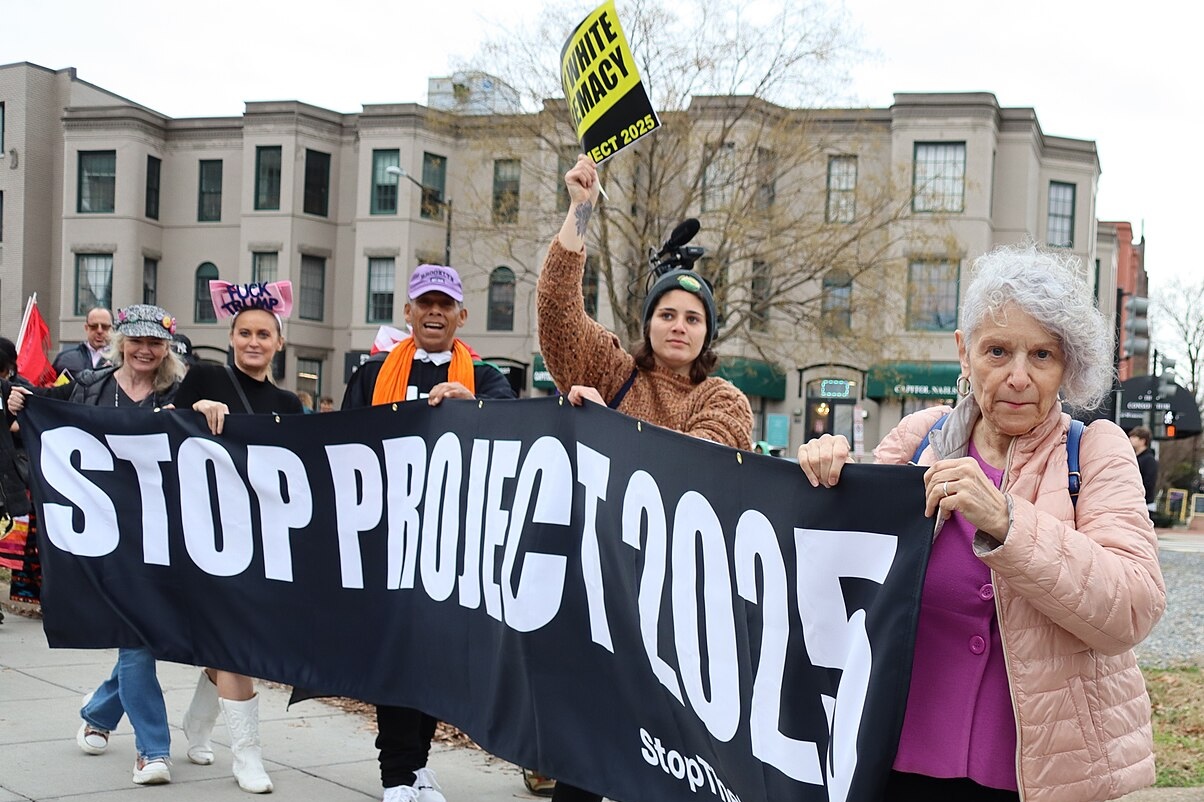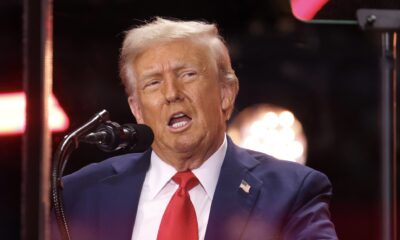Top Stories
Trump’s Efficiency Push Leads to Controversial Government Cuts

President Donald Trump has initiated significant changes within the U.S. government by appointing Elon Musk and Vivek Ramaswamy to lead the newly established Department of Government Efficiency (DOGE). The goal, as outlined in Trump’s announcement, is to dismantle federal bureaucracy, eliminate regulatory excess, and streamline government operations. This bold initiative, however, has raised concerns over its impact on essential government services and oversight.
The underlying philosophy of DOGE aligns with the broader agenda of Project 2025, which advocates for a radical restructuring of government institutions. Critics argue that the project targets vital sectors, including public health, education, and environmental protection, in favor of advancing specific ideological positions.
In a post on July 5, 2024, Trump stated that these appointments would lead to “cutting wasteful expenditures” and making government more efficient. However, as his administration progresses, evidence suggests a troubling trend of prioritizing loyalty over competence. Following the launch of DOGE, numerous inspectors general—who are responsible for maintaining ethical standards and oversight—were dismissed, raising alarms about the potential for unchecked power within federal agencies.
Among the most alarming consequences of this restructuring has been the impact on the Federal Emergency Management Agency (FEMA) and the National Oceanic and Atmospheric Administration (NOAA). Reports indicate that the Trump administration has laid off hundreds of personnel from both agencies, undermining their ability to respond effectively to natural disasters. This has serious implications, particularly as climate-related disasters become more frequent and severe.
For instance, in a recent flood event in Texas, FEMA faced significant challenges in mobilizing resources due to leadership inaccessibility following drastic staff reductions. The Washington Post reported that, during a critical period of flooding, FEMA’s acting administrator was unavailable, leading to delays in emergency response efforts. This incident highlights the dangers of a diminished workforce at an agency tasked with disaster response.
Critics of the administration argue that the emphasis on eliminating perceived bureaucratic inefficiencies comes at a significant cost. Project 2025 has been described as an initiative that seeks to erase terms related to diversity, equity, and inclusion from federal policies, which many see as essential to protecting civil rights. The movement has been characterized by a broader ideological war against structures that promote social justice and equity.
A key aspect of this campaign has included an aggressive stance towards educational institutions, with calls to remove “critical race theory” and “gender ideology” from curricula nationwide. This represents a significant shift in educational policy that many educators and advocates argue undermines academic freedom and the holistic education of students.
The administration’s focus on restructuring and efficiency has also prompted allegations of hypocrisy, particularly as it relates to the treatment of marginalized communities. Critics point to the stark contrast between rhetoric around protecting children from perceived threats and the administration’s actions regarding social support systems, particularly for vulnerable populations, including veterans and low-income families.
Reports by The New York Times have documented how Trump’s administration has also sought to expand executive power significantly, bypassing traditional checks and balances. This has led to concerns among legal experts and civil rights advocates about the erosion of democratic norms.
As the administration continues its push for efficiency, the broader implications for governance and public services remain to be seen. The ongoing debates surrounding these changes reflect deeper societal divisions regarding the role of government and the values that underpin American democracy.
In summary, Trump’s initiative to overhaul government efficiency through DOGE has sparked a wave of controversy. As the administration prioritizes loyalty and ideological alignment over expertise, the potential for long-term damage to critical government functions is a pressing concern for many citizens and stakeholders. The unfolding situation serves as a reminder of the delicate balance required in managing public institutions, particularly in times of crisis.
-

 Entertainment3 months ago
Entertainment3 months agoAnn Ming Reflects on ITV’s ‘I Fought the Law’ Drama
-

 Entertainment4 months ago
Entertainment4 months agoKate Garraway Sells £2 Million Home Amid Financial Struggles
-

 Health3 months ago
Health3 months agoKatie Price Faces New Health Concerns After Cancer Symptoms Resurface
-

 Entertainment3 months ago
Entertainment3 months agoCoronation Street’s Carl Webster Faces Trouble with New Affairs
-

 Entertainment3 months ago
Entertainment3 months agoWhere is Tinder Swindler Simon Leviev? Latest Updates Revealed
-

 Entertainment4 months ago
Entertainment4 months agoMarkiplier Addresses AI Controversy During Livestream Response
-

 Science1 month ago
Science1 month agoBrian Cox Addresses Claims of Alien Probe in 3I/ATLAS Discovery
-

 World2 weeks ago
World2 weeks agoBailey Announces Heartbreaking Split from Rebecca After Reunion
-

 Health4 months ago
Health4 months agoCarol Vorderman Reflects on Health Scare and Family Support
-

 Entertainment4 months ago
Entertainment4 months agoKim Cattrall Posts Cryptic Message After HBO’s Sequel Cancellation
-

 Entertainment3 months ago
Entertainment3 months agoOlivia Attwood Opens Up About Fallout with Former Best Friend
-

 Entertainment2 weeks ago
Entertainment2 weeks agoCoronation Street Fans React as Todd Faces Heartbreaking Choice





















